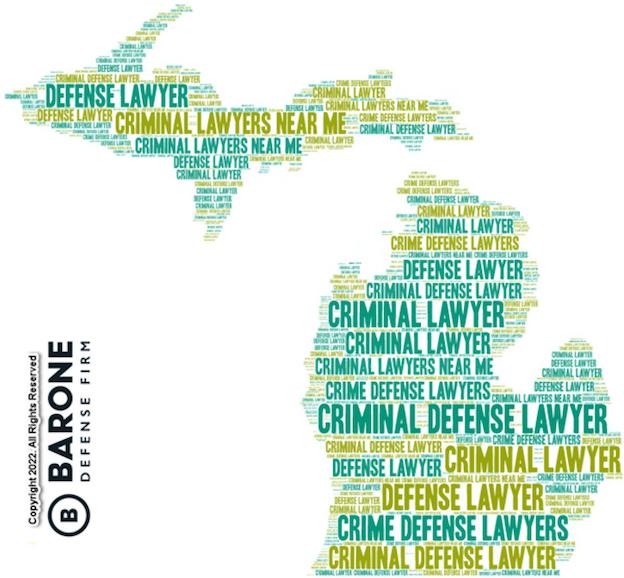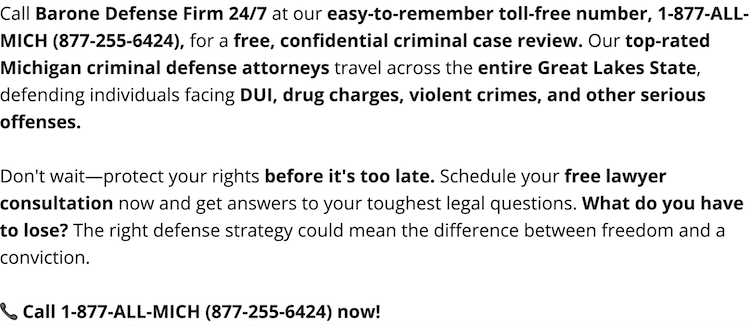Grand Rapids Alcohol Laws
In Michigan, many laws regulate the consumption, possession, and sale of alcohol. Because the penalties for violating Michigan alcohol laws are so serious, speaking with an experienced Grand Rapids DUI lawyer if you have been charged with an alcohol-related offense is important. Below is an overview of Michigan's alcohol laws.
 Penalties for Drunk Driving in Michigan
Penalties for Drunk Driving in Michigan Drunk driving penalties in Michigan vary based on the severity of the offense and any prior convictions.
Administrative PenaltiesDrivers arrested for OWI/DWI often face administrative penalties, including immediate license suspension and potential ignition interlock device requirements. Vehicle immobilization and license sanctions may also apply. This can be the case for first-time offenders, but it's routine for people with a prior history of OWI/DWI. These penalties are independent of any potential criminal penalties.
Criminal PenaltiesCriminal penalties include fines, court costs, and jail. First-time offenders may face up to 93 days in jail, while repeat offenders can expect longer terms. The court might also impose community service and mandatory alcohol treatment programs.
Super Drunk ViolationsMichigan has a Super Drunk law for drivers caught with a BAC of 0.17% or higher. These drivers may face significantly harsher penalties, such as extended jail time, longer license suspensions, and more severe fines. Enhanced penalties for Super Drunk violations can also include mandatory ignition interlock devices and extended mandatory alcohol treatment programs.
Alcohol-Related Laws in MichiganIn Michigan, as well as the rest of the United States, the legal age to purchase and consume alcoholic beverages is 21. The law does allow 18-year-olds to work as a server or bartender in a restaurant that serves alcohol. They may also handle alcoholic beverages, such as beer, wine, and liquor, in a supermarket or package store.
According to Michigan alcohol laws, beer, wine, and liquor can be sold by privately owned retail establishments. The sale of alcohol is prohibited Monday through Friday from 2 a.m. to 7 a.m. and Sunday before noon.
Michigan’s Legal BAC Limit When Operating a VehicleFor those drivers over the age of 21, the legal limit for bodily alcohol content is .08%. If a driver is over this legal limit, he or she may be charged with driving under the influence (DUI).
This is called an OWI in Michigan. The penalties for drunk driving include jail time, probation, community service, fines, and the possibility of a lengthy driver's license suspension.
 Other Alcohol Laws to Know: Underage Possession of Alcohol
Other Alcohol Laws to Know: Underage Possession of Alcohol Michigan's Zero Tolerance laws make it illegal for minors to drive a vehicle with a blood alcohol content of .02% or higher. There are certain exceptions to this law, such as when the consumption of alcohol is part of a religious ceremony. The penalties for a Zero Tolerance conviction include fines and community service.
Michigan's Open Container law makes it a crime for anyone in a vehicle, including the passengers, to consume alcohol. All open containers of alcohol must be stored in the trunk where they are not easily accessible.
If you're taking home an unfinished bottle of wine from a restaurant, the same rules apply. While it is legal to carry the open container to your vehicle, it is not lawful to store this open alcohol container inside the passenger compartment of your car.
Michigan's Implied Consent law requires drivers who are pulled over on suspicion of DUI to comply with the police officer's request to take a chemical test. The most common test is breath, but the officer can also ask for a blood test.

It is up to the officer, not the driver, to determine what test will be administered. A failure to comply with this request can lead to the loss of driving privileges for up to 2 years, and up to six points can be added to the driving record.
Refusing is rarely a good idea because with nearly every refusal the police will simply obtain a search warrant and the driver will be forced to comply. A failure to comply under these circumstances can result in a charge of resisting and obstructing a police officer, which is a very serious felony.
Consulting With a Criminal Defense Attorney and Law Book AuthorHave you recently been charged with violating one of Michigan's alcohol laws? The Barone DUI Defense Firm can help. Submit your case information online today for a free consultation.
Our criminal lawyers near me travel statewide, not just to Grand Rapids, MI. When you speak with us, be sure to request your FREE copy of The Michigan DUI Book (A Citizen's Handbook on Fighting a Michigan DUI Case).
 Barone Defense Firm Home
Barone Defense Firm Home




















